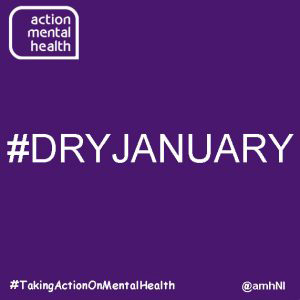
We’re halfway through Dry January and if your resolve is starting to waiver, take heart: there’s just over two weeks to go! If your willpower is slipping, maybe it’s time to remind yourself of the reasons you attempted an abstemious start to 2019 in the first place. For many, it was perhaps part of your traditional new year resolutions, not only to detox from the excesses of the festive period, but also to kick off the new year with a healthy start.
Whatever the reason, just remember that shunning alcohol for brief periods is not only good for your body but also for your mental health.
With the stresses of the fast-paced world of today often being the catalyst to us reaching for the odd drink or two, it is good to know the evidence behind warnings to be careful about your regular alcohol consumption.
Dr Andrew McCulloch, Chief Executive of the Mental Health Foundation, in his forward to its report, Cheers? Understanding the relationship between alcohol and mental health, written by Dr Deborah Cornah, states: “The reasons we drink and the consequences of excessive drinking are intimately linked with our mental health, and this holds the key to dealing with growing worries about alcohol misuse.”
We drink alcohol for many reasons: to help us relax after a busy and stressful day at work, to give us ‘Dutch’ courage, to seal business deals and to toast life’s milestones and many, many more.
But it becomes detrimental to both our physical and mental health when we drink because we ‘need’ it, to numb ourselves from feeling unwelcome emotions and often because we can’t remember life without it.
Some 38% of men and 16% of women are now drinking above recommended limits and 1.1m people nationally are alcohol dependent, with the report finding that people often drink to alter their mood – or change their mental state. And according to the World Health Organisation we are dicing with danger.
“Sufficient evidence now exists to assume alcohol’s contributory role in depression,” according to the WHO’s Global Status on Alcohol report on alcohol, 2004.
The Mental Health Foundation refers to recent studies which have found that up to 12m adults in the UK drink to help them relax or overcome feelings of depression. However, drinking to mask anxiety, depressed mood or general unease has the opposite effect, once the drink wears off. This is why a physical hangover is very often accompanied by anxiety or low mood.
Evidence shows:
Read more on the Mental Health Foundation’s relationship between alcohol and mental health here:
For assistance in overcoming alcohol abuse contact: